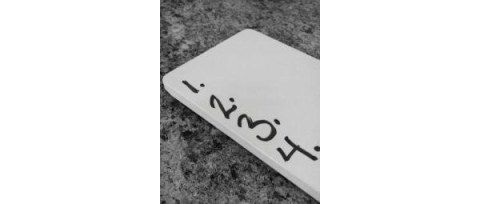6 Ways I Plan to Make a Difference in 2015
January 22, 2015
January is the month for committing to new goals and resolutions for the year ahead. Several years ago I made a New Year's resolution to stop making New Year's resolutions. Like most New Year's resolutions I have not had much success in keeping it. Therefore I am sharing a few resolutions.
In 2015, I resolve to:
1. Avoid a knee-jerk negative reaction when someone comes up with a new name for an old idea that "will transform health care." I will take a deep breath, and offer positive, actionable suggestions. Any approach that will improve communication among health care providers, clients and their families, as Martha Stewart would say, "It's a good thing."
2. Continue to promote the concept of 'caring' whenever and wherever I am able. Budget meetings may seem like an unlikely place to work in the concept of caring, but patient satisfaction has a significant affect on the bottom line, not to mention the fact that patients are the reason we are all here. People happy with their care and caregivers are more likely to actively participate in their health care plan.
3. Roll up my sleeves and begin again, whenever and wherever needed. In the words of baseball great Yogi Berra, it seems we are experiencing "déjà vu all over again." For those of us who are 'seasoned' wound care specialists, we may find ourselves repeating over and over the evidence-based approach we have advocated for a few decades to prevent pressure ulcers and manage chronic wounds. This may seem like wasted energy, but it is not. There is always new and stronger evidence to support and in some cases even change our practice. We need to find new ways of delivering our message that captures the interest of our audience and devise actionable approaches to put evidence into practice.
4. Keep my health care power of attorney and living will up to date. We are in a transition period of health care. Whatever happens on the political scene this transition period has been coming for over a decade and will continue as more 'baby boomers' age into the system and many health care providers 'age out'. I am committed to helping people stay as healthy as possible and plan ahead. People need to make decisions before a crisis hits on how they want to address end of life care. This is not a 'death panel'. It is having a health care power of attorney and living will in place and making sure your family and health care providers know your wishes.
5. Be positive about what I do. I will encourage people to choose health care (especially nursing) as a first or even second career. There are such a variety of health care careers open from generalists to specialists and we need to do all we can to encourage and mentor the next generation. There is a temptation to 'vent' (aka complain) about the challenges we face, especially when we are with other health care providers. One of my friends told me her young son once asked her "If it is so awful why do you do it?" She was taken aback and told him "Because I love it!" He walked away shaking his head.
6. Continue to hold people accountable for improving health care outcomes - including patients/clients themselves. Non-adherence and non-compliance is not the end of the road or an excuse for anyone involved in wound care. There may be very valid reasons a person is unable to comply with their wound care plan - that is why we need to work with them and their caregivers to seek a solution. The reasons can be as varied as the individuals themselves: cost, control, depression, denial, anger, hopelessness, loneliness or unrealistic expectations (e.g. 'if I do not heal it is someone else's fault). The list is endless. Never has the need for a holistic approach to wound care been more important.
May your New Year be filled with health, happiness and success. Be sure to take the time to express thanks to your friends, families and colleagues for all they do to make your life fulfilling.
About The Author
Paula Erwin-Toth has over 30 years of experience in wound, ostomy and continence care. She is a well-known author, lecturer and patient advocate who is dedicated to improving the care of people with wounds, ostomies and incontinence in the US and abroad.
The views and opinions expressed in this blog are solely those of the author, and do not represent the views of WoundSource, HMP Global, its affiliates, or subsidiary companies.












Follow WoundSource
Tweets by WoundSource